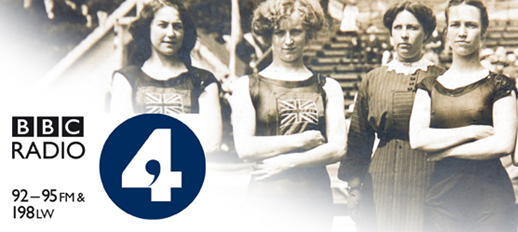Posted: 15 August 2012
Country: UK
 Whilst London 2012 is the first Olympic Games where women have competed in every sport, a recent report reminds us that there is a long way to go towards equality within the BBC. According to the new report published just before the Olympic Games 2012, the BBC on-air presenters and quests are mostly white, well-educated men.
Whilst London 2012 is the first Olympic Games where women have competed in every sport, a recent report reminds us that there is a long way to go towards equality within the BBC. According to the new report published just before the Olympic Games 2012, the BBC on-air presenters and quests are mostly white, well-educated men.

The researchers at the recently launched website OurBeeb have found out that on an average day’s programme on BBC Radio 4, only a third of voices belonged to women – none of them over 60.
“The BBC tries, with deadly seriousness, to embrace a 21st-century attitude to equality. But this clashes with a deeply ingrained culture of long hours and, most importantly, an institutional bias – at times unconscious – against part-time working. These factors, along with a substantial pay gap – on average, women earn £2,000 less per year than their male counterparts – conspire to make broadcasting an uncomfortable prospect for working mothers” – writes Aasiya Lodhi in Guardian. Lodhi worked for the BBC as a radio producer for 16 years before leaving. She wrote that “to this day, not one flagship speech radio programme has an iconic association with a black or Asian presenter – not Today, Woman’s Hour, You and Yours, Desert Island Discs, Gardener’s Question Time, Front Row or In Our Time”. Also not one black or Asian person has been named a channel or station controller.
On 4 June, Queen’s Jubilee Bank Holiday seen as something of a celebration of Britishness, OurBeeb Steering Group member and journalist Clare Sambrook happened to be listening to the radio all day, and was ‘struck more than usually by an overwhelming whiteness and poshness’. ‘Where were the British black voices that day? Where were the voices of working class people? … And I thought what a shame on this day of supposed national celebration that Radio 4 feels more than ever as if it belongs to such a narrow bunch of people’,said Sambrook.
The survey conducted by OurBeeb shows some striking results:
- – 67% of the voices of Radio 4 were educated at fee-paying schools or grammar schools
- – 26% attended Oxford or Cambridge Universities
- – The majority were white British
- – The majority were aged between 50-59
- – Two-thirds were male
- – None of the female personalities were over 60
- – No-one of any gender was aged under 30
The lobby group Sound Women, founded last year to raise the profile of women in the radio industry, estimates that just 17% of board-level executives in radio are women, far fewer than in TV. Radio has an astonishingly high rate of mid-career female drop-outs, who leave after the age of 35. Out of those who stay, fewer than a quarter have dependent children, reports Guardian.
The newspapers’Aasiya Lodhi writes that “the BBC’s lack of creative vision in dealing with part-time workers is a shameful black mark on its record”. “Generations of working mothers have come and gone, and yet the infrastructure surrounding their career development remains in its infancy. Meanwhile, private-sector organisations such as Google, Innocent Drinks and even taxi company Addison Lee – which recently piloted a babies-at-work scheme – seem freer to innovate. With career breaks out of reach, little mentoring and an internal promotion system that favours an antiquated interview system – more akin to sitting a Tripos exam than a reflection of modern corporate practice – it’s no wonder so many male, Oxbridge-educated journalists and broadcasters walk into positions of power with surprising ease”.
Not to forget the good news about the BBC efforts towards the better implementation of an equality policy, there is a story of the individuals such as Gwyneth Williams, current controller of Radio 4, who dropped out after starting a family and tuned in again to fight her way to the top. Two out of her five commissioning editors are now from ethnic minorities, an innovation that deserves due credit, reports Guardian.